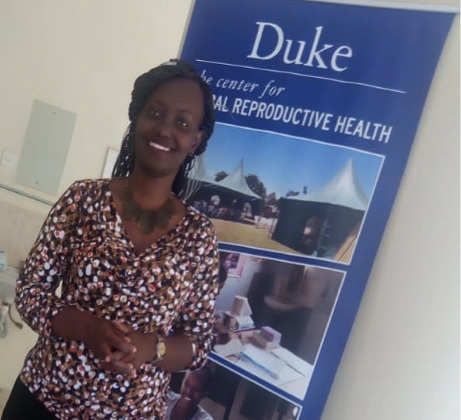
Re-building Rwanda’s Access to Ob/Gyn Services
"In 2011 the Rwandan government embarked on a novel medical education program to improve their health care system. Human Resources for Health (HRH) Rwanda, a partnership between the government of Rwanda and a consortium of 22 U.S. academic institutions, was designed as a 7-year training program to produce qualified medical personnel with the aim of increasing quality and access to health care for Rwandans." As one of the earliest ob/gyn specialists to work in Rwanda with HRH, Duke's Dr. Maria Small led an evaluation of the first five years of the program with the aims of 1) examining the number of trained ob/gyn specialists who graduated from the University of Rwanda as beneficiaries of the HRH program, and 2) conducting a geospatial analysis of pregnant women’s access to Rwandan public hospitals with trained Obstetrics and Gynecology providers using a WorldPop data set. Study Results: "In 2011, there were only 14 ob/gyns in the country. By the end of HRH year 5,...






